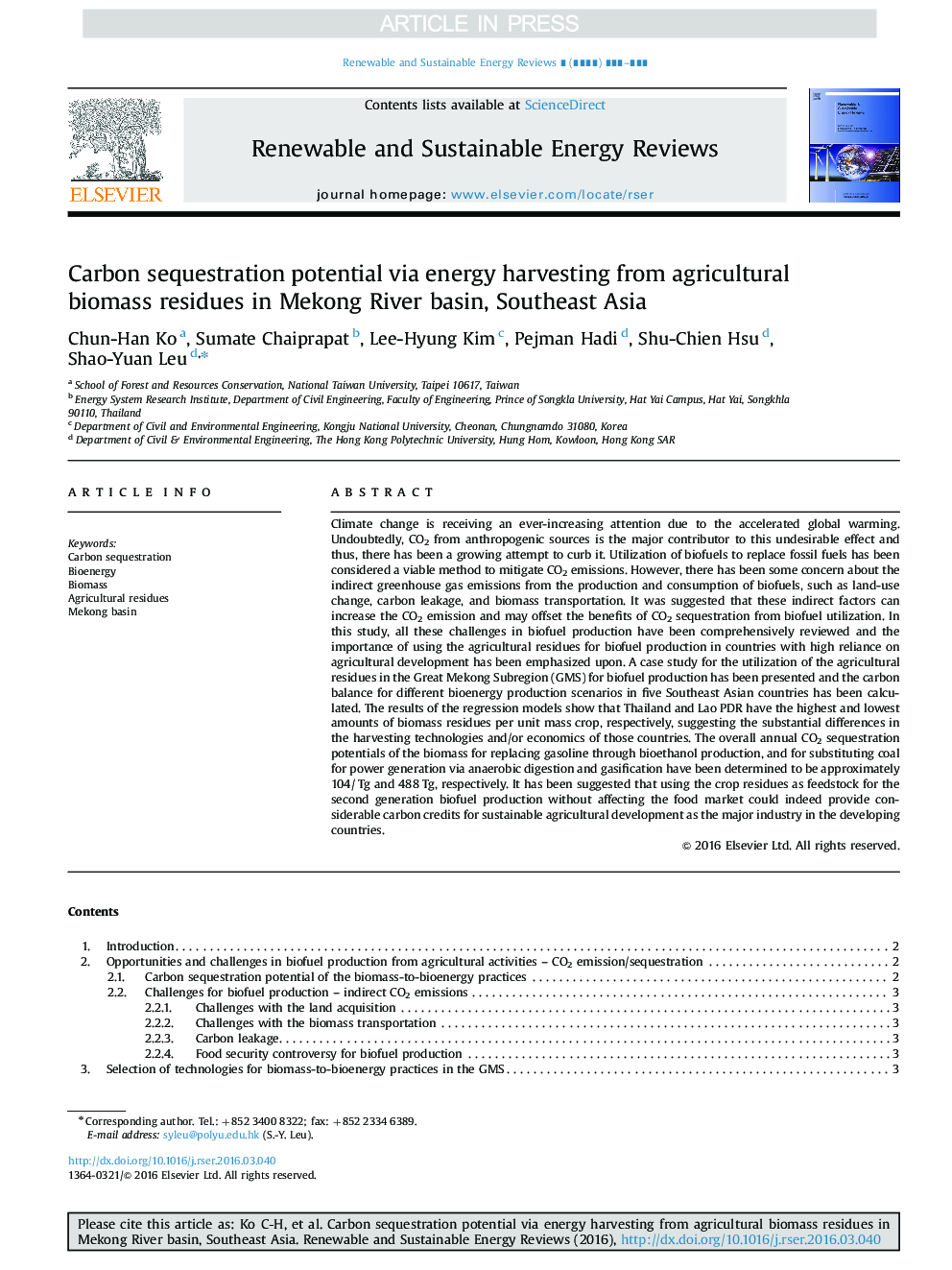| Article ID | Journal | Published Year | Pages | File Type |
|---|---|---|---|---|
| 5483428 | Renewable and Sustainable Energy Reviews | 2017 | 12 Pages |
Abstract
Climate change is receiving an ever-increasing attention due to the accelerated global warming. Undoubtedly, CO2 from anthropogenic sources is the major contributor to this undesirable effect and thus, there has been a growing attempt to curb it. Utilization of biofuels to replace fossil fuels has been considered a viable method to mitigate CO2 emissions. However, there has been some concern about the indirect greenhouse gas emissions from the production and consumption of biofuels, such as land-use change, carbon leakage, and biomass transportation. It was suggested that these indirect factors can increase the CO2 emission and may offset the benefits of CO2 sequestration from biofuel utilization. In this study, all these challenges in biofuel production have been comprehensively reviewed and the importance of using the agricultural residues for biofuel production in countries with high reliance on agricultural development has been emphasized upon. A case study for the utilization of the agricultural residues in the Great Mekong Subregion (GMS) for biofuel production has been presented and the carbon balance for different bioenergy production scenarios in five Southeast Asian countries has been calculated. The results of the regression models show that Thailand and Lao PDR have the highest and lowest amounts of biomass residues per unit mass crop, respectively, suggesting the substantial differences in the harvesting technologies and/or economics of those countries. The overall annual CO2 sequestration potentials of the biomass for replacing gasoline through bioethanol production, and for substituting coal for power generation via anaerobic digestion and gasification have been determined to be approximately 104/Â Tg and 488Â Tg, respectively. It has been suggested that using the crop residues as feedstock for the second generation biofuel production without affecting the food market could indeed provide considerable carbon credits for sustainable agricultural development as the major industry in the developing countries.
Related Topics
Physical Sciences and Engineering
Energy
Renewable Energy, Sustainability and the Environment
Authors
Chun-Han Ko, Sumate Chaiprapat, Lee-Hyung Kim, Pejman Hadi, Shu-Chien Hsu, Shao-Yuan Leu,
